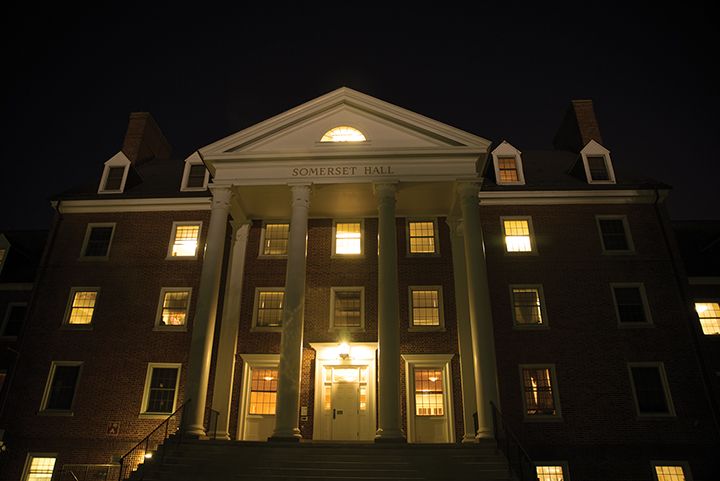Views expressed in opinion columns are the author’s own.
Earlier this semester, transgender students at the University of Maryland held a panel for the Department of Resident Life, following the department’s repeated failures on transgender issues. Topics such as bathroom usage, non-binary inclusion and general support were covered.
It’s good to have these discussions — everyday life, much less life in a dorm, can be difficult for transgender students. For transgender people who fit into the gender binary, choosing which bathroom is among those difficulties. Influences on their decisions might include their assumed level of safety, how well they “pass,” the environment and their level of gender dysphoria. For non-binary transgender people, who don’t identify as exclusively male or female, the choice is even less clear — and invalidating to their identity in either case.
Housing and roommate options can also be difficult to navigate. In order to assure their safety, transgender students must find an accepting and respectful roommate, which can be especially difficult as a freshman or transfer student with few or no prior relationships at the university.
In recent years, this university has attempted to alleviate these issues in some spaces, both with this panel and other movements toward trans-inclusiveness. Gender-inclusive housing in dorms and on-campus apartments allow students of any gender identity to live together and share a private bathroom. However, as with any such system, several important issues remained unsolved.
Several of my friends — whose observations about Resident Life in part sparked the idea to host the previously mentioned panel — live in Hagerstown Hall and are members of the University Honors living-learning program. Hagerstown, like most North Campus dorms, does not offer gender-inclusive housing. Coming in as transgender, first-semester freshmen, they all had difficult decisions to make: Should they choose a living-learning program without accommodations, or assured safety and comfort in gender-inclusive housing?
This isn’t a decision any student should have to make. As boasted by Resident Life, “students who participate as members of [living-learning programs] have higher retention and graduation rates and report higher satisfaction with their undergraduate experience at Maryland.”
Living-learning programs allow students to build communities both inside and outside of the classroom and form friendships with classmates — something that can be hard to do on a large campus. Although many programs allow students to participate in the academic endeavors of the program without living in the community, the living situation is, as indicated in the name, half of the experience. By not offering the appropriate housing option many transgender people need to feel safe and secure in these programs, trans students may find themselves excluded or put into unsafe situations in order to participate.
Only four of the 15 dorms on campus that house living-learning programs offer gender-inclusive housing, covering only five programs out of the 18 currently offered at this university. While 10 of these dorms host mixed gender housing, this option solves neither the bathroom nor the roommate issues a transgender identity can bring, despite being touted as a good option for transgender students. This leaves the BioFIRE, Carillon Communities, CIVICUS, Flexus, Global Communities, Gemstone, Honors Humanities, some University Honors, Jiménez-Porter Writers’ House, Language House and Vitrus programs without gender-inclusive housing options.
I’ll be honest: I don’t have a cohesive solution to all of these problems. Many dorms don’t have the infrastructure to build single-user bathrooms on every floor, and everyone should have the option to live in traditional or mixed gender housing if they prefer. However, gender-inclusive housing requires no construction (if redefined to exclude a mandatory private bathroom). Regardless, Resident Life could designate floors or parts of floors to be gender-inclusive, but they choose not to.
For a university that champions its pursuits in diversity and inclusiveness, the lack of widespread trans-friendly housing is not an issue that should be ignored. While the current emphasis on issues like pronoun awareness and inclusive language in dorms are a great step in the right direction, fundamental issues such as housing remain, and arguably impact transgender students lives more directly. To meet its stated goal of inclusivity, Resident Life needs to correct its lack of attention to safe and secure housing for trans people.
Ray Newby is a freshman English major. He can be reached at raynewby00@gmail.com.



